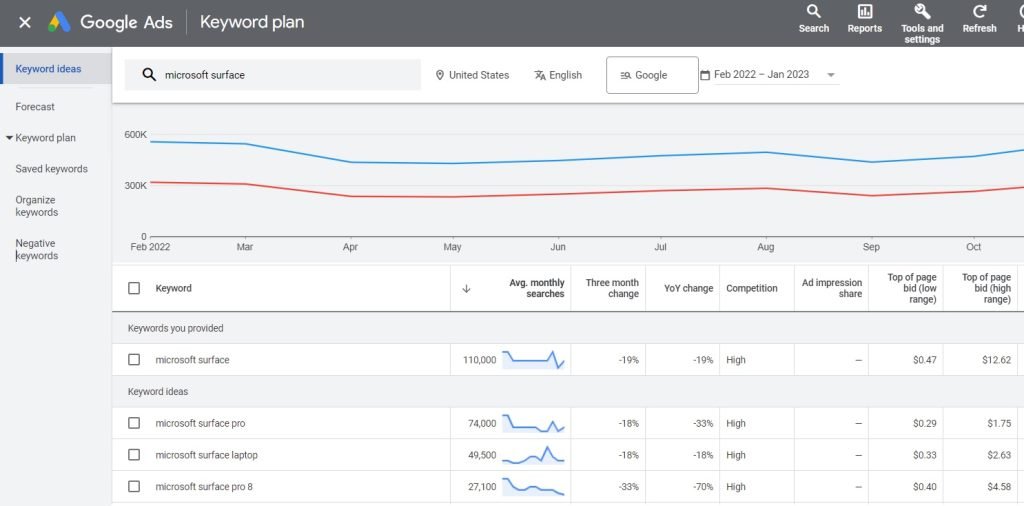Discovering Competitors’ Keywords to Elevate Your SEO Strategy
In the competitive landscape of online search, understanding your competitors’ keyword strategies is crucial for outranking them and attracting your target audience. By identifying the keywords they’re using to drive traffic, you can gain valuable insights and enhance your own SEO efforts.
Why Competitor Keyword Research Matters
- Uncover Opportunities: Find keywords your competitors are ranking for that you might have overlooked.
- Refine Your Strategy: Identify gaps in your competitors’ keyword coverage and capitalize on them.
- Benchmark Your Performance: Compare your keyword rankings and traffic to your competitors to gauge your progress.
- Stay Ahead of the Curve: Keep tabs on your competitors’ evolving keyword strategies to maintain your competitive edge.
Tools and Techniques for Competitor Keyword Research
-
-
SEO Tools:
- SEMrush: Provides comprehensive competitor analysis, including organic keywords, backlinks, and advertising strategies.
- Ahrefs: Offers in-depth keyword research, backlink analysis, and content gap analysis.
- Moz: Features a suite of SEO tools, including keyword research and competitive analysis.
-
Google Search Console:
-
- Analyze your own search queries to see which keywords are driving traffic to your site.
- Identify keywords where you’re ranking just below your competitors and optimize your content to improve your position.
-
- Google Keyword Planner:
- Get keyword ideas and search volume estimates for your industry and niche.
- Analyze your competitors’ ad campaigns to see which keywords they’re bidding on.
-
Manual Research:
- Analyze your competitors’ website content, meta tags, and headings to identify their target keywords.
- Search for your competitors’ brand names and product names to see which keywords they’re associated with.
Steps to Find Competitors’ Keywords
-
Identify Your Competitors:
- Conduct a Google search for your main keywords and see who is ranking on the first page.
- Use SEO tools to identify your organic and paid search competitors.
-
Analyze Their Websites:
- Examine their website content, meta tags, and headings for keyword clues.
- Look for pages that are ranking well for specific keywords.
-
Use SEO Tools:
- Enter your competitors’ domain names into SEO tools to get a comprehensive list of their keywords.
- Analyze their backlink profiles to see which keywords are driving traffic to their sites.
-
Compare and Prioritize:
- Compare your competitors’ keywords to your own and identify gaps in your coverage.
- Prioritize keywords based on search volume, relevance, and competition level.
Incorporating Competitor Keywords into Your SEO Strategy
- Optimize Your Content: Include relevant competitor keywords in your website content, meta tags, and headings.
- Build Backlinks: Acquire backlinks from websites that are also using your target keywords.
- Track Your Progress: Monitor your keyword rankings and traffic to measure the impact of your efforts.
Conclusion
By conducting thorough competitor keyword research and incorporating the findings into your SEO strategy, you can gain a competitive advantage, attract more qualified traffic, and ultimately achieve higher rankings in search engine results pages (SERPs). Remember, staying ahead of the competition requires ongoing analysis and adaptation.



